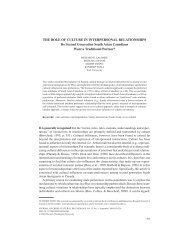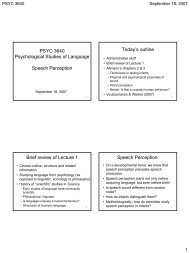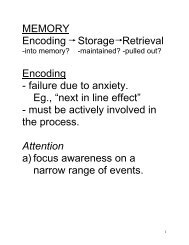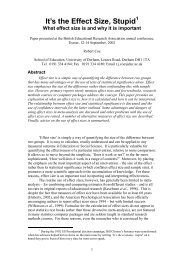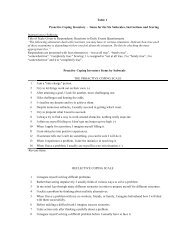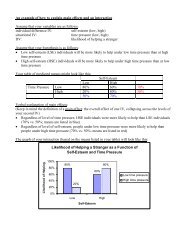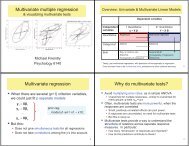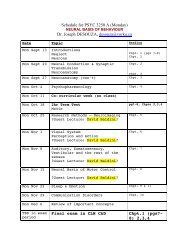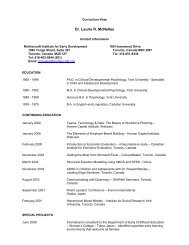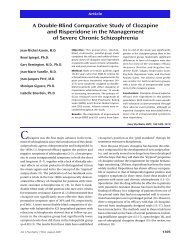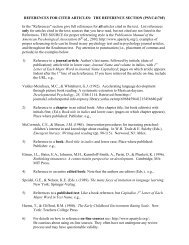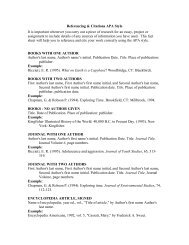The Drama of the Gifted Child (The Search for the True Self)
The Drama of the Gifted Child (The Search for the True Self)
The Drama of the Gifted Child (The Search for the True Self)
You also want an ePaper? Increase the reach of your titles
YUMPU automatically turns print PDFs into web optimized ePapers that Google loves.
children are aware <strong>of</strong> this situation and are able to tell us<br />
about it, <strong>for</strong> this may enable <strong>the</strong>m to throw <strong>of</strong>f <strong>the</strong> chains<br />
<strong>of</strong> power, discrimination, and scorn that have been handed<br />
on <strong>for</strong> generations. When our children can consciously<br />
experience <strong>the</strong>ir early helplessness and narcissistic rage<br />
<strong>the</strong>y will no longer need to ward <strong>of</strong>f <strong>the</strong>ir helplessness, in<br />
turn, with exercise <strong>of</strong> power over o<strong>the</strong>rs. In most cases,<br />
however, one's own childhood suffering remains affectively<br />
inaccessible and thus <strong>for</strong>ms <strong>the</strong> hidden source <strong>of</strong><br />
new and sometimes very subtle humiliation <strong>for</strong> <strong>the</strong> next<br />
generation. Various defense mechanisms will help to<br />
justify this: denial <strong>of</strong> one's own suffering, rationalization<br />
(I owe it to my child to bring him up properly), displacement<br />
(it is not my fa<strong>the</strong>r but my son who is hurting me),<br />
idealization (my fa<strong>the</strong>r's beatings were good <strong>for</strong> me), and<br />
more. And, above all, <strong>the</strong>re is <strong>the</strong> mechanism <strong>of</strong> turning passive<br />
suffering into active behavior. <strong>The</strong> following examples<br />
may illustrate how astonishingly similar <strong>the</strong> ways are in<br />
which people protect <strong>the</strong>mselves against <strong>the</strong>ir childhood<br />
experiences, despite great differences in personality structure<br />
and in education.<br />
A thirty-year-old Greek, <strong>the</strong> son <strong>of</strong> a peasant and owner<br />
<strong>of</strong> a small restaurant in Western Europe, proudly described<br />
how he drinks no alcohol and has his fa<strong>the</strong>r to thank <strong>for</strong><br />
this abstinence. Once, at <strong>the</strong> age <strong>of</strong> fifteen, he came home<br />
drunk and was so severely beaten by his fa<strong>the</strong>r that he<br />
could not move <strong>for</strong> a week. From that time on he was so<br />
averse to alcohol that he could not taste so much as a drop,<br />
although his work brought him into constant contact with<br />
it. When I heard that he was soon to be married, I asked<br />
whe<strong>the</strong>r he, too, would beat his children. "Of course," he<br />
answered, "beatings are necessary in bringing up a child<br />
properly: <strong>the</strong>y are <strong>the</strong> best way to make him respect you.<br />
70



